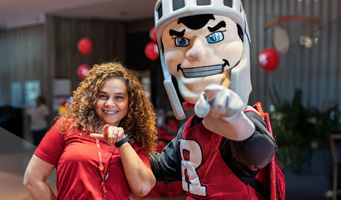Research at SHP
SHP has a vibrant and interdisciplinary clinical and translational research program with areas of unique strength in physical and mental health rehabilitation, informatics, technology, epidemiology, nutrition and wellness.
Our researchers apply a team-based and patient-centered approach to their investigations across a spectrum of disciplines in the health sciences ranging from physical therapy, rehabilitation counseling, psychology and nutrition to kinesiology, neuroscience, engineering, mathematics and computer science. SHP’s research agenda explores novel interventions to solve clinical dilemmas related to chronic and acute diseases, investigates new methodologies aimed at health promotion and prevention, as well as develops technological strategies that will improve overall health outcomes, including quality of life.


